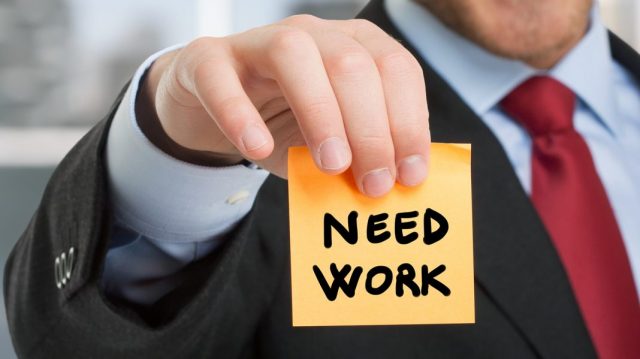The freelance sector entered recession in the second quarter of 2020 as a second consecutive trimester of negative growth in freelancers’ earnings was recorded by the Association of Independent Professionals and the Self-Employed (IPSE).
IPSE’s Freelancer Confidence Index for Q2 2020 revealed that freelancers’ average income dropped by 25 per cent to the lowest level of quarterly earnings recorded since the survey began in 2014, from £20,821 to £15,709. Average daily rates fell by just 3 per cent, however, from £430 to £416, suggesting that the drop in earnings was due to a lack of work, rather than rate decreases.
On average, freelancers spent a record 42 per cent of the second quarter without work, or 5.5 weeks – a substantial increase on Q1’s spare capacity level of 3.3 weeks. Whilst unprecedented, this is unsurprising due to the country spending the majority of the second quarter in lockdown. The largest amount of time freelancers have spent “on the bench” previously was 3.4 weeks in Q3 2016.
As they did last quarter, freelancers expect rates to drop further before they rebound: 61 per cent expect to see a decrease in their daily rates over the next twelve months and rates are expected to drop by an average of 10.6 per cent. In addition to earning less, 61 per cent of freelancers expect their business running costs to increase over the next year, by an average of 6.1 per cent.
The survey was published on Tuesday, twenty-four hours before the Office for National Statistics (ONS) published data showing that the wider economy had entered its worst recession since records began in 1955, with gross domestic product (GDP) falling by 20.4 per cent in the second quarter, surpassing declines in the US, France, Germany and Italy.
Freelancers’ business confidence has remained low since the outcome of the 2016 referendum on leaving the European Union, but following the emergence of the global health crisis and associated economic shutdown indices fell to extraordinary lows. In Q1 2020, the three-month freelancer business confidence index dropped by almost fifty points to its lowest ever level of minus 62.6.
This quarter, the confidence index recovered by over forty points to minus 20.4, which is still the second lowest level on record but much closer to the pre-pandemic level of minus 14.7 seen in Q4 2019. The inference is that freelancers believe that the worst of the crisis is over, and the impact of coronavirus on their businesses should improve over the next quarter.
The index measuring freelancers’ business confidence for the next year also recovered from the record low of minus 57.3 last quarter, but remained lower than the three-month index, climbing to minus 30.5 – again, the second lowest level seen since the survey began in 2014. IPSE suggested that the lower level of confidence over twelve months could represent concerns regarding IR35 reforms due to take effect in the private sector next April, and possible economic repercussions resulting from the end of the Brexit transition period in January.
“Freelancers are more worried about the prospects for the coming year than the next three months, perhaps reflecting fears about a second wave as well as the implementation of the changes to IR35 in April next year,” said IPSE’s senior researcher Inna Yordanova.
“With such a financial cliff-edge and limited government support, it is not surprising freelancers’ confidence in their businesses over the next 12 months is drastically low.”
The publication of the Q2 Freelancer Confidence Index coincided with figures released by the ONS on Tuesday showed that the amount of people in self-employment had dropped by a record 238,000 in the second quarter of 2020.
“This recession is unprecedented,” said IPSE. “Since it is unusual and actually sanctioned to stop something else, economists, politicians and therefore freelancers, only have limited information about where we might be in several months. While this is uncertain, however, the roll-out of IR35 next year is likely to compound problems with finding work.
“There is some cause for optimism, however. Economic recessions generally lead to a surge in freelancing and a surge in opportunities for freelancers. The government is now pivoting its agenda on how to stimulate the economy after the coronavirus crisis. In every green job, in every aspect of their levelling-up agenda and in every regional infrastructure project, freelancers can provide their expertise, knowledge and passion to get Britain’s economy up and moving once again.”
Commenting on the GDP data, chancellor Rishi Sunak said: “I’ve said before that hard times were ahead and today’s figures confirm that hard times are here. Hundreds of thousands of people have already lost their jobs and, sadly, in the coming months many more will. But while there are difficult choices to be made ahead, we will get through this and I can assure people that nobody will be left without hope or opportunity.”
12th August 2020.









